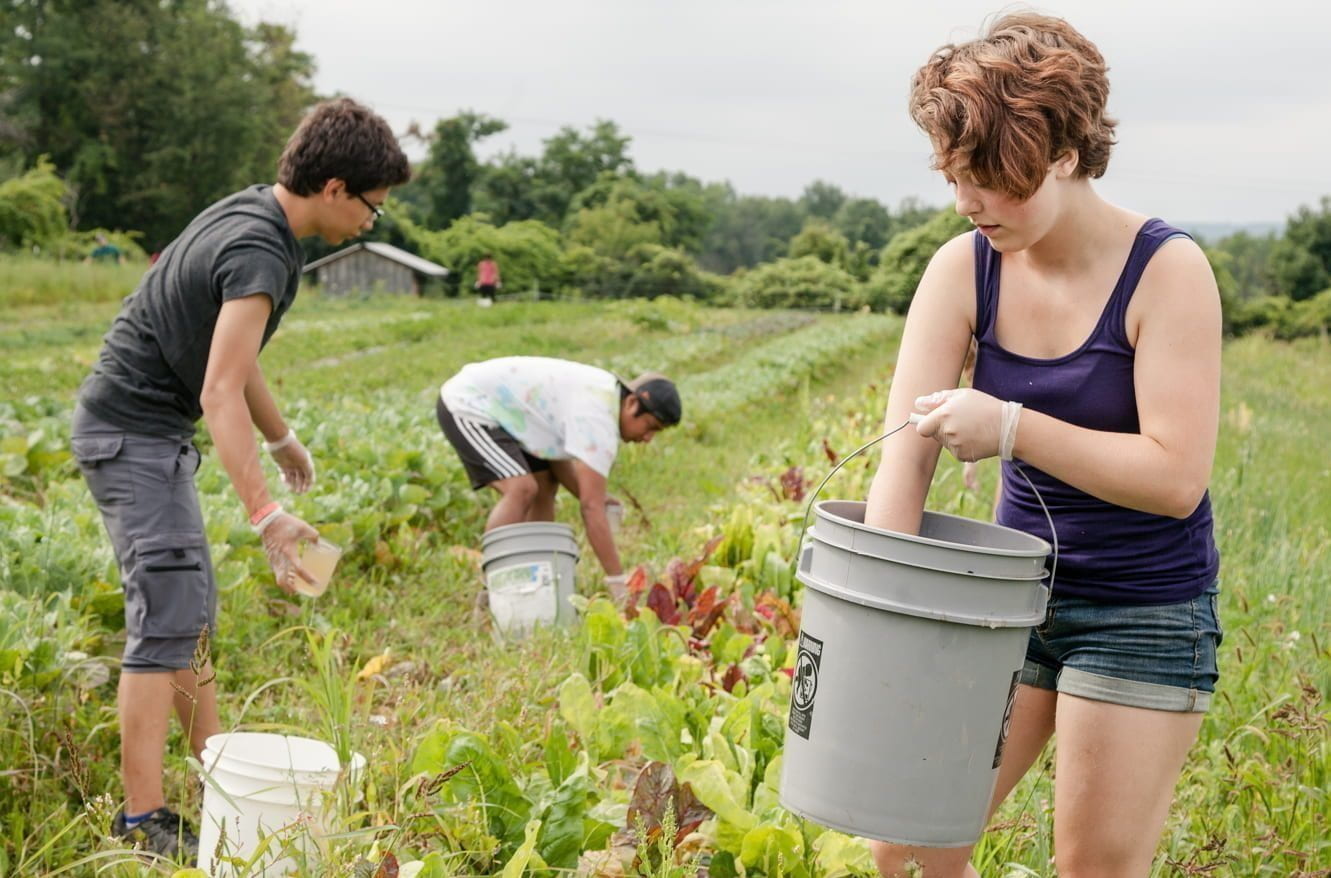Food Systems & Health
Food Systems and Why They Matter For Health

Food systems are much more than what people choose to eat and the effects of those choices on their bodies. Food systems start with what food can be produced and where it can be produced; how it can be harvested, stored, and processed; how it gets to market; and whether it is accessible, affordable and attractive. All these steps happen before someone walks down an aisle and chooses what to buy to eat. Food systems impact the long-term health of individuals and populations, the sustainability of the environment, and the wellbeing of people and animals.
Our students recognize that humans, plants, animals, and non-living parts of the environment such as climate and water, are inseparable when exploring food systems. This One Health approach prepares our graduates to address challenges from an ecological perspective, understanding that sustaining a nutritious worldwide food supply requires preserving natural resources, and that investing in the health of ecosystems can prevent foodborne diseases from spreading to human populations.
What We Offer
Our MPH Program prepares students in the Food Systems & Health concentration to address the health needs and inequities of our rapidly changing world and to build sustainable food system solutions. Through coursework and engaged projects our students learn to:

- Analyze and depict food systems from production to consumption to understand their impact on health outcomes and inequities
- Apply interdisciplinary approaches to integrate social, political, economic, and ecological dimensions to contextualize food systems and related health problems and opportunities
- Research and evaluate food system interventions to improve nutrition, food security and public health
- Investigate and communicate food safety risks throughout food systems
- Analyze current public health nutrition problems and policies and compare policy alternatives
Food Systems & Health Curriculum
In addition to the MPH core curriculum, Food Systems & Health students will take the following concentration-specific courses:
Food Systems and Health
VTPEH 6121, 3 credits, Fall
The goal of this course is to introduce students to connections between food systems and health. The course uses concepts, theories and methods from multiple disciplines. Students explore the complex interconnections of food systems and public health needs and learn from interdisciplinary experts and professionals in the fields of local and international public health, economics, sociology, and environment.
Public Health Nutrition
VTPEH 6122, 3 credits, Spring
The goal of this course is to consider the three core public health functions of assessment, policy development and assurance, with specific application to public health nutrition. The course explores examples of these functions in the US and in other industrialized countries, as well as in multiple low and middle-income country settings, and provides tools for analyzing differences, similarities, and fit with context. Focal topics include the multi-faceted causes of nutritional problems, including social and environmental determinants, and trends in prevalence such as the nutrition transition and impacts on undernutrition, micronutrient deficiencies, to overweight and obesity.
Food Systems Approaches to Food Safety
VTPEH 6123, 3 credits, Fall
Every year, over 48 million people will experience a foodborne illness. In this course students learn how foodborne illnesses are investigated, and how out-breaks are traced through complex food systems back to the contaminated food. By conducting patient interviews, students gain practical experience in solving foodborne disease outbreaks. Students also contribute to preventing foodborne outbreaks in our community by working with local food processors to reduce food safety risks.
Outcomes
- Identify food safety risks throughout specific farm-to-fork food systems
- Describe the relevant disease surveillance systems and their roles in out-break surveillance and detection
- Acquire practical investigation skills by collecting data for use in real-life foodborne disease investigations by performing patient interviews
- Implement a root cause analysis to facilitate in foodborne disease outbreak investigations
- Synthesize data of recent national foodborne disease outbreaks in order to develop educational materials to communicate food safety preventative measures to be used by local food processing communities to prevent food-borne disease outbreaks
Food Systems & Health Applications
VTPEH 6124, 3 credits, Spring
This course pushes students to apply the tenets of food systems, nutrition, and health to demonstrate proficiency in the core functions and essential services of public health. Students will explore real-world food systems and health challenges, and apply tools and strategies to explore risks and disparities, understand needs and opportunities, and propose reasonable and feasible solutions.

Diverse Career Pathways

Food Systems & Health graduates have gone on to work for government agencies, non-profits, research centers, and private corporations across the U.S. and around the world.
Many of our alumni continue to specialize in areas of the food system in their chosen career—for instance, directing food safety efforts for the Tokyo Metropolitan Government, coordinating nutrition and food access programs for rural communities, analyzing a diabetes prevention program for a medical center, or lobbying for the National Milk Producers Federation.Others graduates apply the many transferable skills they gained from coursework and projects (such as systems thinking, data analysis, needs assessment, program design and evaluation, leadership, and cultural competence) to roles in other areas of public health—for instance, managing research informatics for a non-profit clinic focused on compassionate care, coordinating programs for a drug abuse prevention program, or analyzing healthcare data for a consulting company.While the majority of our graduates immediately enter the workforce as professional public health practitioners, approximately 25% go on to pursue additional degrees, such as a Registered Dietitian or a PhD in Community Health and Prevention.
Research and Engaged Learning
Want to learn more about what our Food Systems & Health students and faculty are working on? Check out the stories below!
Serving Rural Areas Through Extension
Larkin Podsiedlik, Executive Director of Cornell Cooperative Extension of Madison County
Mapping Hazards & Empowering Action
Alumni in Action: Cole Jamal ’22
Cole Jamal, Cornell MPH ’22



